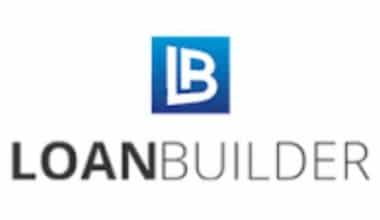The last ten or two decades have seen a significant evolution in the work of sales development. In the past, sales representatives would begin their careers by answering phones and speaking with potential customers. The work of a sales development representative (SDR) in the modern era is significantly more strategically oriented. It calls for a lot of abilities, expertise, and collaboration. All information that you need about sales development representatives will be outlined in this article and a lot more.
Who is a Sales Development Representative
A salesperson known as a sales development representative (SDR) concentrates on finding, contacting, and qualifying potential customers to create new business prospects for the organization. Usually, their job is to generate leads and manage them as they move through the sales pipeline.
Typically, a sales development representative will get in touch with prospective clients early in their buying process. A sales representative, on the other hand, usually nurtures qualified leads and, in some circumstances, may be in charge of closing the sales.
What Does a Representative of Sales Development do?
The ability of sales development reps to move leads through the sales pipeline is how they are evaluated. Instead of closing deals, they concentrate on nurturing great leads. The ability of sales representatives, on the other hand, to close deals that meet or surpass their quota for a specific time frame is evaluated. Although they play different roles, they need one another to accomplish both their personal and professional objectives.
#1. Exceptionally Tailored Outreach
It can be challenging for an SDR to prospect while balancing quantity and quality. You know that interacting with qualified leads takes a little more time, but on the other side, you want to establish a robust pipeline for your sales rep. The most effective salespeople are slowing down, investing more time in outreach, and connecting with fewer prospects, and I can see that the scales are tipping.
#2. Ability to Actively Listen and Adapt
I believe that active listening is one of the solutions. While a chatbot may be able to qualify leads, nothing asks questions and pays attention to information quite like a human (at least not yet). An SDR should not be robotic or forced in their interactions with prospects; instead, they should be sincere and helpful.
#3. Follow-Up
SDRs like to speak with prospects over the phone, but voicemail might occasionally be the next best thing. I went to a sales seminar several years ago, and one of the speakers made a simple observation that resonated with me. “If you leave 25 great voicemails, you’ll at least have a chance to earn a callback. You have a far lower chance of getting a callback if you don’t leave any voicemails, though.
#4. Resilience
Without a doubt, SDRs have a difficult job. SDRs don’t enjoy the same level of success as sales representatives, whose primary objective is to close sales. Typically, they phone and send emails all day long. That might be draining.
Job Description of a Sales Development Representative
#1. Contact Potential Customers
You must be aware of the greatest locations to locate your ideal clients if you want to interact with prospects.
- Trade exhibitions, social media, conferences, online communities, word-of-mouth from current clients, and social gatherings are a few examples.
- Establish a strategy for contacting prospective clients with informative content, tailored emails, event invitations, etc. after gathering names and contact information.
- Be prepared to communicate with many contacts each day through calls, emails, and other means.
#2. Organization
Although they might differ from person to person, processes are essential to maintaining organization. SDRs can plan their days and give priority to the things that are essential to their success by managing their schedules (e.g., email outreach, calls, and meetings.)
#3. Curiosity
Successful SDRs have a keen interest in education. A person’s current job may benefit from their curiosity about learning about new products, industries, or organizations, but it will also benefit them as they advance in their careers.
#4. Relationship-Building
Before handing a prospect off to your account manager to close, it is your responsibility as an SDR to prepare them for the sale. SDRs who are successful can develop sincere relationships with prospects and win their trust. You need to have the ability to communicate with a wide range of individuals across a variety of channels if you want to be successful at building relationships.
#5. Getting Past Objections
The ability to handle objections is the final talent that every outstanding sales development representative I know possesses. Although 35% of sales representatives cite dealing with price complaints as their toughest issue, you don’t have to be one of them. Most salespeople find that when they learn more about all the solutions their company offers and witness them in action, they become more adept at overcoming objections.
#6. Prospects should be Informed
Educating potential customers on the business you represent and its goods and services is a crucial component of dealing with them early in their buying process. Ask prospective customers questions to learn about their wants, what they’re searching for, and what problems they are having that may have led them to the goods and services you offer. Be able to provide them with knowledge about your goods and services so they can make informed selections.
#7. Coachability
When interviewing SDR candidates, one of the most crucial skill sets we look at HubSpot is coachability. Although self-assurance is crucial, an SDR’s capacity to accept and use honest criticism can be hampered by ego. The top SDRs proactively seek out mentoring from high-performing colleagues and demand honest criticism from their supervisors.
#8. Prospects Should be Qualified
A qualified lead or prospect is someone who fits your buyer personas and is likely to make a purchase. A prospect is moved on to the following stage of the sales process by the sales development representative when they meet these requirements. This stage may involve a sales call, a product demonstration, or a discussion with another sales representative, account representative, or account executive within the company.
#9. Eliminate Potential Customers who aren’t a Good Fit
Choosing which prospects won’t be a good fit for continuing the sales process is a crucial aspect of an SDR’s job. The sales team can then completely concentrate on nurturing qualified prospects and closing deals. A prospect might not be a suitable fit if they aren’t interested in the products, aren’t sure what they need, or don’t have the money to buy them.
#10. Talk to the Other Members of the Sales Team
You must effectively communicate with other sales team members as you qualify leads and move them forward in the sales process so that leads have a positive shopping experience.
Skills for Sales Development Representatives
Given the significance of sales development reps, you will require a strong set of technical and professional abilities, which are discussed in more detail below, to succeed in this position.
Skills in Technical SDR
In-depth product and service knowledge inspires assurance when giving customer presentations, responding to product-related questions, and assisting potential customers in moving on to the next stage of the sales process.
Understanding CRM technologies can make it simpler to manage client information and automate processes so that you can work more productively.
Competence with diverse marketing platforms, such as social media or email, might make it easier to source potential clients.
Salary of a Sales Development Representative
Sales development professionals in the US earn, on average, $74,323, according to Glassdoor. This covers the typical base salary as well as any other compensation, such as cash bonuses, commissions, and profit-sharing arrangements. You might be able to earn $97,839, which is the US average for people with this level of experience if you have 15 or more years of experience working as a sales development rep.
Sales Development Representative Resume
Choose the finest format to sell yourself. Depending on how many years of experience you have, there are various methods to format your resume. Let’s take a closer look at these two sample job searchers to observe how they used different resume structures to emphasize their unique skills.
They are at different phases of their careers but share the same talents and employment experience. While the second candidate displays a series of brief occupations, the first candidate displays continuous work.
The first applicant might highlight their consistent employment on a combined resume. With a functional CV, the second applicant may highlight their skills and draw focus away from short-term contracts. To demonstrate how you might structure your resume utilizing these two approaches, we’ll bold the parts of each that are identical.
#1. Resume for Candidate A in Combination
- Sales Representative Development
- Years of Paraphrased Workforce
- 1 year in this position
- Political Science, BS
Experience at Work
- To constantly rank among the best performers in my organization, I routinely exceeded daily, weekly, and monthly criteria.
- Generated and qualified potential leads to fill the pipeline of our sales departments.
- Approximately 260 opportunities that lead to legitimate sales were qualified.
- For all sales, the anticipated cost of revenue is more than $5 million.
#2. Applicant B, Functional
- Sales Representative Development
- 4 years of employment
- 11 months at the position
- BA Screenwriting
Is a Sales Development Representative a Good Job?
If they perform successfully, sales development professionals might make a very nice entry-level salary thanks to their great pay scale. Nevertheless, as with many sales occupations, you must put in a lot of effort if you want to make the maximum money.
What Skill do You Need as a Sales Development Representative?
You want SDRs who can explain their thoughts effectively and be able to react to inquiries on paper and in person. While active listening is incredibly important, having outstanding communication skills (both verbal and written) is also extremely key to the success of your rep.
What does a Sales Development Representative do day to day?
Outbound prospecting is the responsibility of sales development representatives. They conduct research, make contact with potential customers who could be interested in the company’s offerings, and introduce those customers to the business. These customers are referred to as leads.
Sales development representatives need to be tough. Demonstrate to the interviewer that you can swiftly recover from rejection by talking about your recovery techniques.
How do You Pass a Sales Development Interview?
Finding high-quality prospects is one of the biggest SDR issues addressed. As the success of a sales process exclusively rests on obtaining high-quality leads, you will spend a lot of time prospecting as an
Conclusion
In the early stages of a sales funnel, a sales development representative is in charge of outbound sales and marketing tasks, such as locating and making contact with new clients. Contacting individuals who fall within a company’s target market but have not yet expressed an interest in the brand or its goods is known as outbound marketing and sales.
Warm leads, or those who have already found and showed interest in the brand, are the emphasis of inbound sales, in contrast. A sales development representative’s objective is to produce qualifying leads so that other members of the sales team may close deals and, as a result, reduce the sales cycle.
Related Articles
- INSURANCE SALES REPRESENTATIVE: How To Become An Insurance Sales Representative In 2023
- BRAND REPRESENTATIVE: Cities That Pay More to Brand Representatives
- FINANCIAL REPRESENTATIVES: Requirements to Becoming One
- SALES TEAM: Ways To Motivate and Grow Your Sales Team
- Outside Sales: Best 2023 Practices & Detailed Tips (Updated)
- SDRs: Meaning, and What They Do






